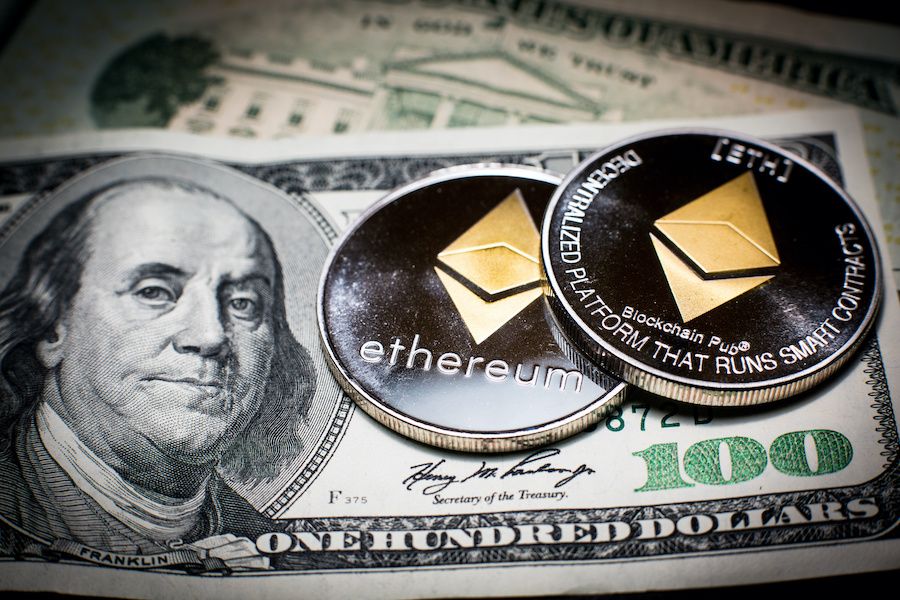Playbook #043: Ethereum Dapps & Smart Contracts

🖼️ The Big Picture
If you’ve been following us or learning about crypto for a while, you’ve probably heard that Ethereum is the dominant “network” in the crypto space.
You’ve also probably heard of their cryptocurrency, Ether (ETH), which is the currency of Ethereum apps. It is the second-largest cryptocurrency by market cap, trailing only Bitcoin. Like other cryptocurrencies, it’s divisible so you can buy it in small amounts, and send it in peer-to-peer payments.
What you might not know is that Ethereum enables hundreds of Dapps (“Decentralized Apps”) to run on it, including:
- Wallets like Metamask
- NFT marketplaces like OpenSea
- DeFi platforms like Aave (decentralized lending)
- Exchanges like Uniswap
- Games like Axie Infinity
- and much more...
Here are a few examples of how DeFi is disrupting traditional finance.
Dapps are apps like any other on your phone or laptop, except they use blockchain to keep users’ data private. Dapp creators can’t sell user data to other entities, remove a post, or exclude a user.
It also promises to revolutionize almost every industry through the use of smart contracts, which use if / then technology to fulfill promises between 2 or more parties without the need for a trusted third party like a lawyer.
For example, you have a digital contract for a piece of real estate that says when $100,000 is sent to XYZ account, send the property title… then you can simplify a lot of transactions. Here are just a few examples of major transformations coming in a few big industries:
- Real Estate - speed up transactions and eliminate middlemen for easier and more profitable sales. Protect you from property fraud by linking title, documents, and contracts on the blockchain. Enables tokenization for fractional ownership (5 people could split a $1,000,000 apartment building) and more liquidity (you could sell your token faster and easier.)
- Healthcare - there is still no universally recognized patient identifier allowing you to have a master health file that’s easily transferred to any new practitioners you see. In fact, the existing system is so sloppy there have been issues of mismatched records leading to patient harm. A medical blockchain could improve patient care, prevent insurance fraud, and even allow for token reward incentives for staying healthy.
- Supply Chain - blockchains can be used to document every transaction where a product changes hands, from creation to sale, reducing costs, human errors, and time delays. They can verify the authenticity of products and ensure safer products and delivery.
- Plus additional use cases including:
- Decentralized Autonomous Organizations (DAOs)
- Lotteries
- Crowdfunding
- And much more… (this is just the beginning.)
Like Bitcoin, there are miners who process and verify what you’re doing, and are rewarded with newly-issued ETH. Though as soon as they switch from “proof of work” to “proof of stake” in their “2.0 upgrade,” Ethereum miners will become obsolete.
You can also “stake” your ETH, which helps secure the network and allows you to earn rewards as high as 18%.
There are too many ways to capitalize on this for us to list, so we’re going to cover a few of the big ones, and you can dive as deep down the rabbit hole as you want.
🔢 By The Numbers
You don't have access to this CAPITALIZE issue at the moment, but if you upgrade your account you'll be able to see the whole thing, as well as all the other posts in the archive! Subscribing will give you immediate access.
This CAPITALIZE issue is for members only
Join nowWhat is CAPITALIZE?
CAPITALIZE is a tool for discovering new ways to grow your wealth. You get a new investment idea each week in a simple 7-Minute report. Quickly check to see if it matches your "Investor DNA" and fast-track your way to being a top 1% investor... with less risk. Created by Wealth Factory for people who want to build their wealth and keep it.
